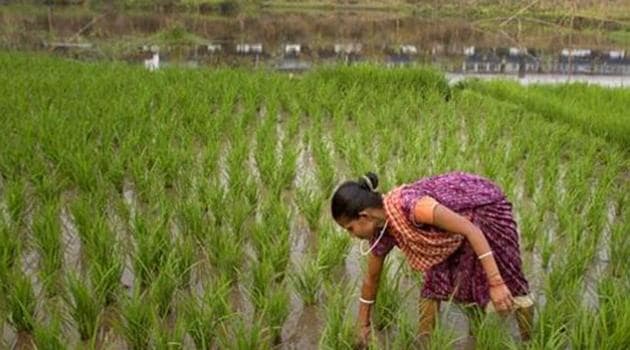Cabinet clears oil storage projects, no word on MSPs for Kharif crops
In Wednesday’s meeting, the cabinet committee on economic affairs approved the creation of two more underground crude oil storages in Odisha and Karnataka to increase India’s emergency fuel stockpile cover by 12 days to 22 days.
The government has delayed announcing minimum support prices (MSPs) for 23 crops for the ensuing kharif or summer-sown season, with a proposal failing to come up before the cabinet committee on economic affairs on Wednesday.

In Wednesday’s meeting, the cabinet approved the creation of two more underground crude oil storages in Odisha and Karnataka to increase India’s emergency fuel stockpile cover by 12 days to 22 days. The decision was announced by finance minister Piyush Goyal who did not, however, provide details of the cost or the timelines.
The meeting was chaired by Prime Minister Narendra Modi. It was the decision the cabinet didn’t take, though, which was more significant. It was widely anticipated that the cabinet would decide on the kharif MSPs.
MSPs are announced twice a year, at the beginning of rabi (winter) and kharif (summer) sowing seasons.
For the kharif season, these are usually announced within the first two weeks of June. Analysts say lack of timely knowledge of support prices could hamper crop choices of farmers, leading to potential losses in income.
Sowing for summer crops is already under way and, so far, about 11.6 million hectares have been planted with crops such as pulses, rice, cotton, oilseeds and sugarcane, according to agriculture ministry data.
A weak start to the monsoon has resulted in sowing being 12.5% less than last year by this time of June and about 9% less than the five-year average.
To woo farmers amid tackle a crash in commodity prices, the government had announced in the Budget for 2018-19 that MSPs would be set at 1.5 times the cost of production so that farmers get 50% returns over costs.
“This delay in announcing MSPs is unusual. Ideally, the price signal to farmers should go out before the sowing season starts. For example, our calculations show, the MSP for cotton will go up by 28% if the government were to set it at 1.5 times the cost of production. In that case, many farmers may prefer cotton to paddy,” said Siraj Hussain, a former agriculture secretary and a visiting fellow at the think tank ICRIER.
An official requesting anonymity said authorities at the “highest level” in the government are having a re-look at the recommended MSPs for a few crops, which is a reason for the delay.
MSPs constitute a key farm price policy that affects crop choices and food output. MSPs serve as a so-called “price signal”, meaning farmers tend to shift to crops that come with higher MSPs.
In 2017-18, the government announced kharif MSPs on June 7, while in the previous year, they were announced on June 1. In 2014-15, an election year, they were announced on June 25. This year, they are now unlikely to be announced before the first week of July.
The Modi government has declared that it would not only set higher crop support prices this year, but to also put in place a mechanism to ensure farmers actually receive MSPs for all declared crops. Farmers have faced agrarian distress mainly because commodity prices have ruled below MSPs.
The possibility of higher kharif MSPs this year has also raised concerns of a possible impact on inflation. In their last review of monetary policy, all six members of the Reserve Bank of India’s monetary policy committee agreed that there were upside risks to inflation due to the government’s impending decision on hikes in MSP.
According to farm minister Radha Mohan Singh, in deciding on the MSPs, the Centre would use a prevailing measure of costs called “A2+FL”.
This includes all out-of-pocket expenses of farmers plus the value of family labour used. Farmers organisations have been demanding the use of “C2”, which also includes imputed costs of capital and rental on land.
Get Current Updates on India News, Lok Sabha Election 2024 live, Infosys Q4 Results Live, Elections 2024, Election 2024 Date along with Latest News and Top Headlines from India and around the world.




